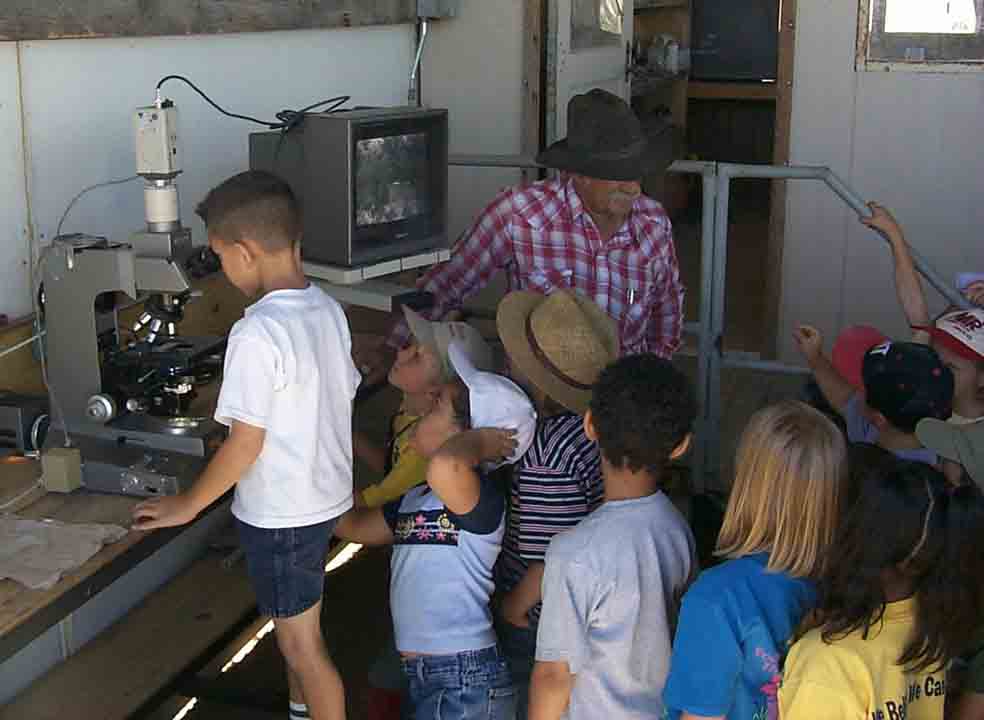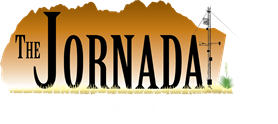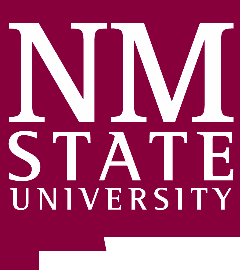Our education/partnering program has four main components devoted to the transfer of science-based information to K-12 students and teachers, land management agencies and their personnel, other partner institutions, private land managers, international collaborators and institutions, and the general public.
The Asombro Institute for Science Education - Fortunately, we have an outstanding working relationship with one of the premier non-profit organizations devoted to K-12 science literacy in the nation, the Asombro Institute for Science Education. This award winning organization improves existing science literacy for over 15,000 students and teachers each year. In addition, the Asombro Institute is responsible for several highly creative and instructional programs including:
- Climage Change and the Water Cycle - A 10-Hour Curriculum Unit for 6-12 Grade Students (funded by the Southwest Regional Climate Hub)
- Schoolyard Desert Discovery Project
- Desert Data Jam
The Desert Data Jam, started in 2012, is the newest science education collaboration between Asombro and the Jornada, and met with tremendous success in its inaugural year. The program is devoted to encouraging high school students to utilize and communicate in original and creative ways any of the historic data collected from our research projects over the history of our science program. Projects, either entered as individual or team efforts, are competitively judged and students compete for cash awards. Project winners are announced in a ceremony at the conclusion of the academic year.
Asombro Institute: Teaching Kids Science Literacy With Hands-On Research - The Asombro Institute is a
non-profit dedicated to teaching kids science literacy. Stephanie Haan-Amato talks to us about one method they
use where they take current research being done, and have kids take part in collecting and interpreting data.
Applications - We also develop tools to collect, store, and/or analyze information related to inventory, assessment and monitoring of land resources. Two key examples of these applications are:
Both of the applications and associated products are freely available on our website and actively updated and improved. These applications, and the many newer applications in development, are widely used by our partners and clients. These applications are results from our research program.
Training materials, webinars, workshops, and field schools - Throughout the year we offer either hands-on programs on-site or instruction programs delivered over the internet to communicate our latest science based technologies. Examples of these activities include:
- our Botany Field Workshop offered bi-monthly to improve plant I.D. skills and is open registration
- workshops such as the Pedoderm and Pattern Class and
- webinars on different topics available upon request
Cooperative agreements with over two dozen collaborators, institutions, agencies, or land owner groups - In prior years our research unit maintained a focus group drawn from numerous client, partner, and stakeholder organizations that would meet annually to provide input and critical review of our research program. We have evolved this focus group into a number of separate cooperative agreements with each of these groups to more specifically address common needs and objectives. These cooperative agreements are listed at https://www.ars.usda.gov/research/projects_programs.htm?modecode=62-35-15-00.
However, we are now developing a new approach to these collaborations. We are developing portals through our website that organize many different types of information important to us and our partners in a single web-based location. These portals contain information that is transparently stored, accessed, added-to, shared, and utilized to address our common objectives and the common management problems facing our partners in a data-based, scientifically rigorous manner. This effort is new. Two portals now under development are:
- the Malpai Borderlands Group portal and
- the Las Cruces District Office of the Bureau of Land Management portal
A number of new portals, with new useful applications, are under development.

Some of the over 15,000 students participating annually in the science education activities organized by the Asombro Institute.


